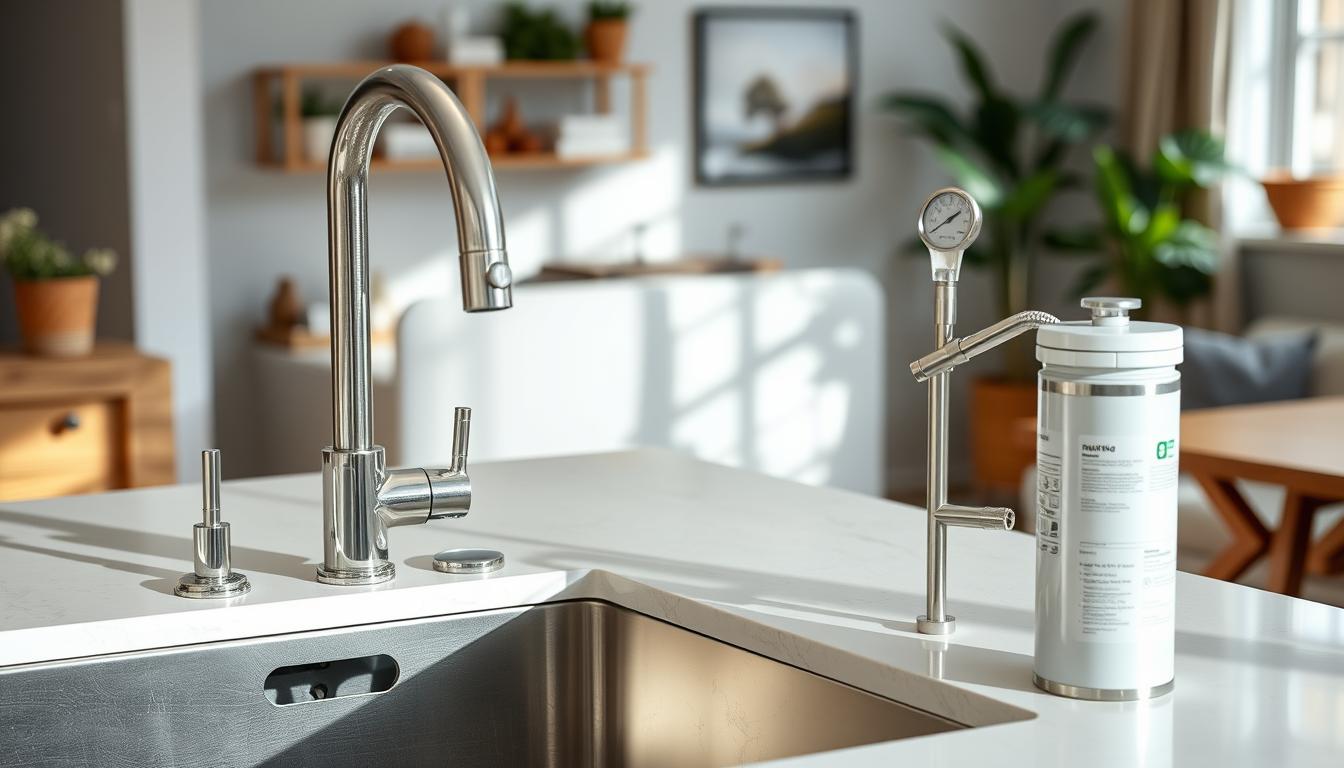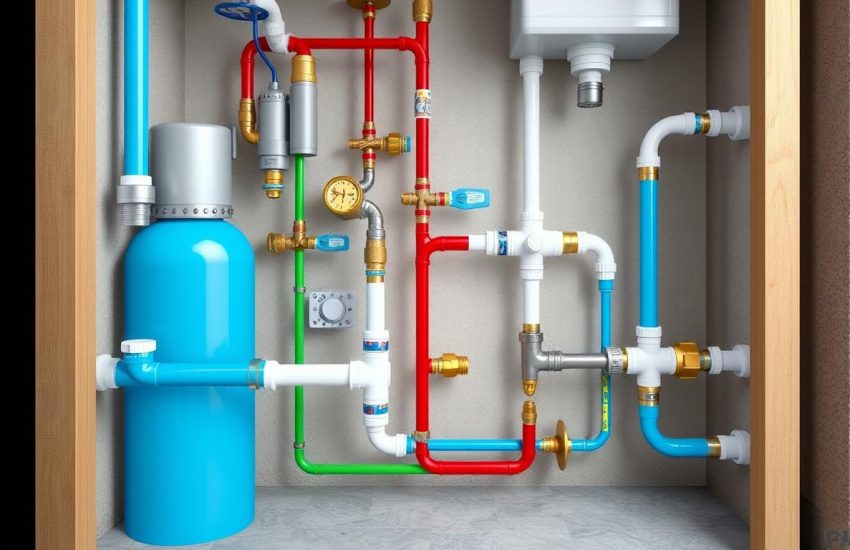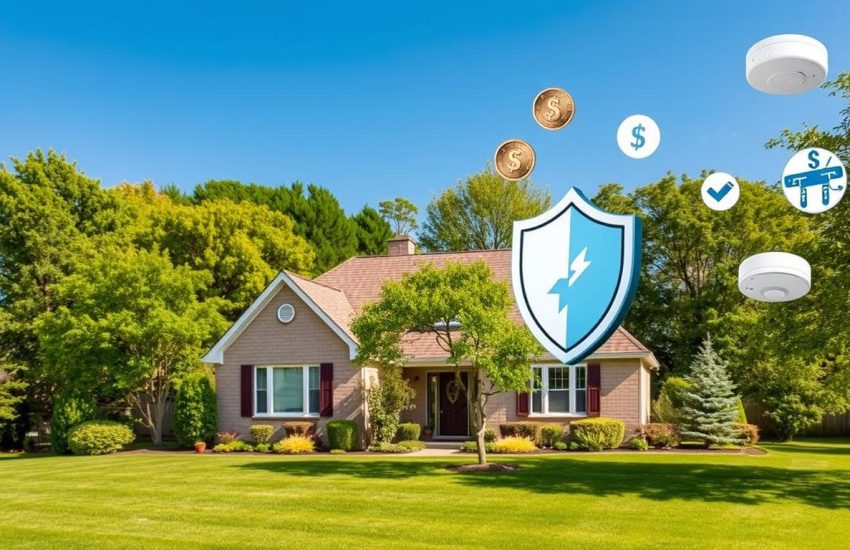Plumbing Upgrades: A Complete Guide for Homeowners
Could your home’s water flow be silently draining your wallet and harming the planet? When did you last check your residential plumbing system for water supply system upgrades? As a vital part of home improvement, updating your plumbing saves money and helps the environment. By improving your drain-waste-vent system and choosing efficient plumbing tech, our guide helps modernize your water system.
Make wise choices like tankless water heaters to avoid energy loss of regular tanks. Use water-saving fixtures to cut down your home’s water use. Upgrades like radiant floor heating or an efficient kitchen dishwasher can also boost comfort and home value. Let’s explore how updating your home’s plumbing can open doors to savings, a greener lifestyle, and peace of mind.
Key Takeaways
- Knowing your residential plumbing is crucial for successful upgrades.
- Energy-efficient heaters and fixtures save a lot in utilities.
- Modern pipes are more durable and need less upkeep.
- Luxurious and efficient bathroom and kitchen upgrades improve comfort and save water.
- Professionals ensure upgrades last long and meet building codes.
- Regular inspections and upkeep keep your plumbing upgrades efficient.
- Experts like Wagner match your style with practical plumbing solutions.
Why Focus on plumbing upgrades?
Upgrading your home’s plumbing is more than just fixing leaks. It’s a smart choice that boosts home value. It makes your home comfortable and keeps your plumbing reliable. By making these upgrades, you make your home look better. You also make it a great choice in the housing market.
Modern plumbing, like PEX or copper pipes, means fewer repairs. It also gives you better water pressure. And, it lowers the chance of water damage. In places like Frisco, Texas, good water systems can raise house prices. Learn how these strategic upgrades can help your home.
New water systems like softeners or tankless heaters save energy. They are good for the planet and your wallet. They make your home more attractive to buyers who care about the environment. Upgrades show your home is a modern, efficient place.
Smart water systems come with smart taps and leak detectors. They work with home automation systems. This new tech helps manage water use. It makes your home ready for the future. And it shows your home uses water carefully.
Choosing to upgrade brings comfort and beauty to your home. It also brings peace of mind. With CGC Water’s help, these upgrades detail your plumbing’s long life. They make your home more valuable and appealing.
DIY vs Professional Help
Upgrading your home’s plumbing can be a big decision. You might wonder if you should do it yourself or get professional plumbing assistance. Knowing when to do it yourself or when to call experts can save time and money. It also ensures reliable solutions.
Doing small jobs like changing a faucet or unclogging a sink is often easy and cheap. Many homeowners can do these DIY plumbing upgrades without hiring professionals. Cleaning aerators or checking for leaks can also be simple. These steps can make your plumbing last longer and not cost extra money.
But, some plumbing issues are hard to fix on your own. This is when you need professional plumbing assistance. For example, if you often get clogs or need big changes like new pipes or fixing sewer lines, you should hire experts. Such jobs are complex and must follow local rules. Only experienced plumbing experts can do them well.
| Task | DIY | Professional Help |
|---|---|---|
| Unclogging Drains | Accessible | Needed for frequent/severe clogs |
| Water Heater Maintenance | Basic Maintenance | Complex tasks like replacing anode rod |
| Pipe Insulation | Possible | Recommended for extensive projects |
| Water Pressure Issues | Limited DIY Actions | Professional adjustment of regulators |
| Sewer Line Repairs | Not Advised | Immediate Professional Intervention |
Choosing between DIY plumbing upgrades and reliable solutions from pros depends on a few things. These include how hard the task is, safety, saving costs, and how quickly you need it fixed. Minor repairs might tempt you to try them yourself. But, for big or urgent problems, it’s safest and most effective to call professionals.
How to Save Money
Saving money on plumbing isn’t just about spending wisely. It’s also about using smart solutions. These can save water and avoid future costs. Here are tips for affordable plumbing while saving water.
Small habits and regular checks are key. Fixing a dripping tap right away can save 15 gallons of water daily. Also, setting your water heater to 120°F can cut energy bills by up to 10%.
- Regular Maintenance: Doing a yearly check helps avoid breakdowns and makes things last longer. Look for leaks, insulate pipes, and know where your shut-off valve is.
- Cost-Efficient Upgrades: Water-saving products like low-flow toilets and faucets from EPA’s WaterSense lower bills.
- DIY Fixes: Using baking soda and vinegar to clear drains and fixing small leaks saves money. You also learn about water conservation.
Upgrading to things like tankless water heaters or efficient washing machines helps too. They cost more at first but save more water and energy later.
| Upgrade | Immediate Cost | Long-term Savings |
|---|---|---|
| Energy-Efficient Tankless Water Heater | Higher | Significant |
| Low-flow Toilet | Moderate | Moderate to High |
| Insulating Pipes | Low | Moderate |
Planning well and making smart choices help save money and protect the Earth.
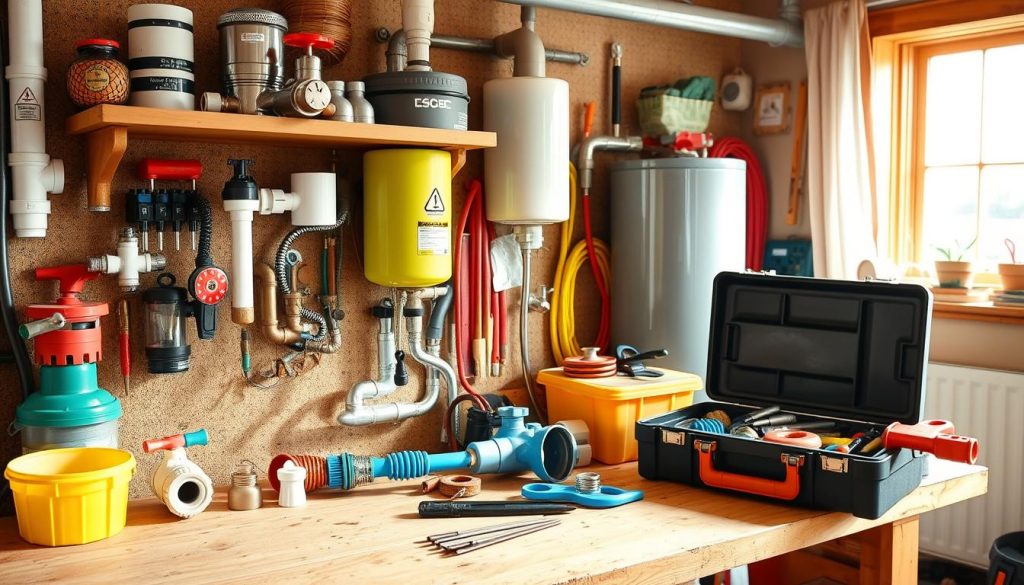
Professional Consultation: Sometimes, for big projects, you might need help from pros like Beehive Plumbing. They know which upgrades save the most money and work best for you.
Using these ideas saves water and improves your home. It’s a smart plan for now and later.
Step-by-Step Upgrades
Upgrading your home’s residential plumbing infrastructure is important. It takes careful planning. Follow this guide for great results:
- Assessment: Start with a full check of your plumbing. Use smart leak detectors to find leaks early.
- Planning: Make a detailed plan. Include new fixtures and PEX piping for easy install and reliability.
- Upgrading Fixtures: Get water-saving fixtures like low-flow toilets. This saves water and lowers bills.
- Pipe Replacement: Swap old pipes with copper or PVC for better durability.
- Advanced Technology: Add touchless faucets and tankless water heaters for efficiency.
- Compliance and Safety: Make sure upgrades follow local laws. A licensed plumber can ensure this.
Keep your plumbing system maintenance up-to-date. This will make your plumbing last longer and work better.
| Upgrade | Benefits | Considerations |
|---|---|---|
| Low-Flow Fixtures | Significant water savings | Choose models that please users and save water |
| PEX Piping | Makes install easier, cuts costs | Check if it fits with your current fixtures |
| Smart Leak Detectors | Get alerts to leaks fast, avoid water damage | Test them often and keep them connected |
| Modern Water Heaters | Uses less energy | Pick the right size considering your water use |
Adding these upgrades to your residential plumbing infrastructure boosts your home’s value. Good upgrades need planning, strategy, and the right pros.
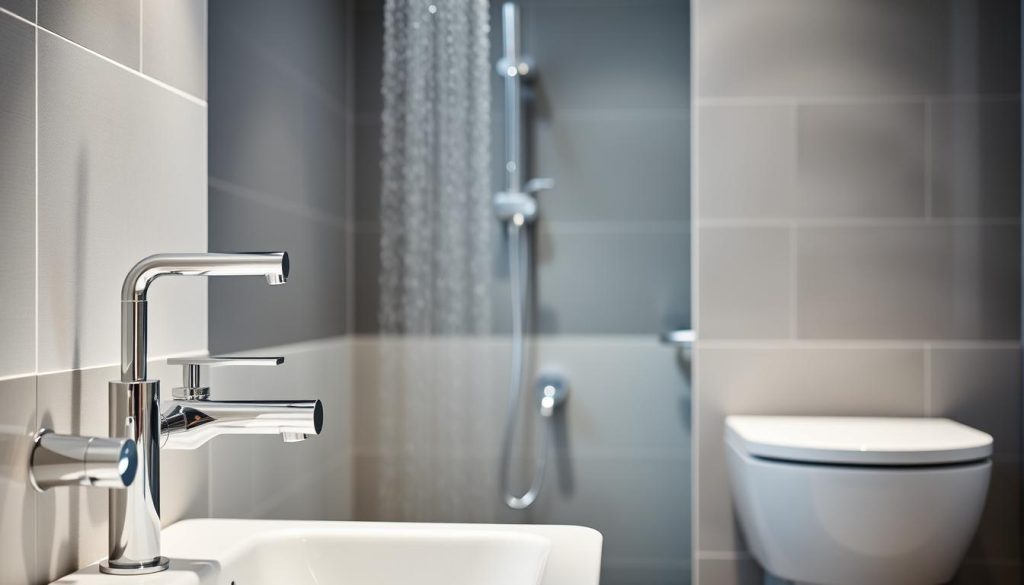
Final Tips for Success
Efficient residential plumbing is key to making your home better and more valuable. A good plumbing system is not just useful. It also makes your home look and feel nicer. For example, low-flow toilets cut water use by up to 60%. And, dual-flush toilets let you control water use even more.
Fixtures with a WaterSense label are not just efficient, they also make your space look nicer. Using backflow preventers keeps your drinking water safe. These steps, along with using energy-saving appliances, save you money on bills.
Upgrading your plumbing can really increase your home’s market value. A yearly check of your plumbing helps find and fix problems early. Using strong materials like PEX or copper can make your plumbing last 50% longer. Always keep records of the work done and guarantees. This info shows how reliable your home is. In summary, good planning and using the best materials save you about 30% in costs. They also make your home 40% more appealing. This makes improving your home a smart and profitable move.

